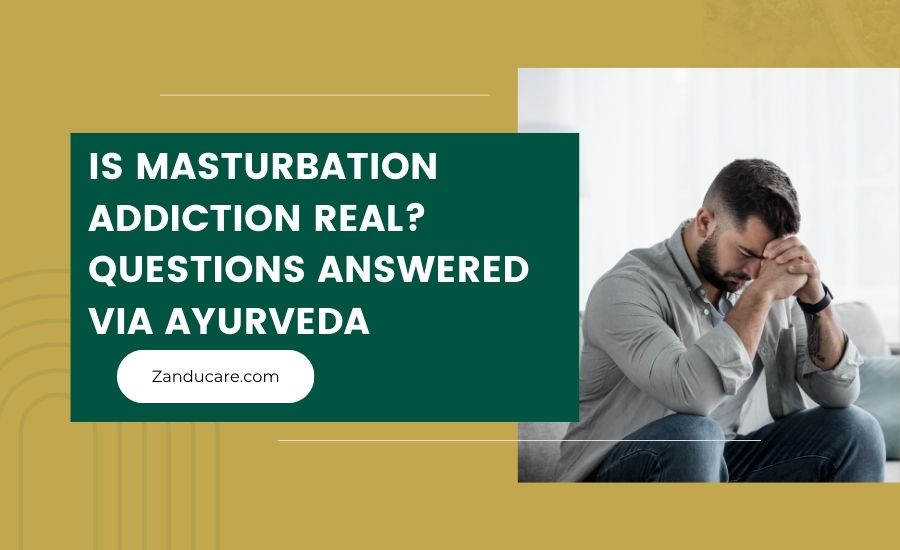
Is Masturbation Addiction Real? Questions Answered via Ayurveda
Masturbation addiction is a condition that affects a person's mind, emotions, and body when they become overly dependent on self-pleasure. People continuing to masturbate despite the troubles it brings in their lives is a persistent issue. Masturbation in and of itself is not harmful; some people engage in it whether they see someone.
However, for some people, the impulse to masturbate might grow too strong and be difficult to curb. Masturbation addiction is a term used to describe this situation. Even though chronic masturbation is treatable, many people choose not to do so out of embarrassment.
Most adults masturbate, and it's beneficial to their health. It's entirely normal to do since it improves sexual pleasure and maintains the health of your sex life. But it's crucial to avoid developing an addiction to it.
What ought to be an enjoyable pastime that improves your sexual desire shouldn't turn into something beyond your control. So, this article will discuss all you must know about masturbation addiction and answer every question you may have regarding it.

Source: Image by Pixabay
What is Masturbation Addiction?
Compulsive masturbation happens when a person can't resist the temptation to masturbate and does it constantly. Although some refer to it as "masturbation addiction," there isn't enough evidence to support this label as a legitimate medical diagnosis. It can be a sign of other medically recognised diseases. Unfortunately, there isn't a lot of study on this subject since individuals feel embarrassed to discuss it.
In moderation, masturbation may be a healthy behaviour. However, when done excessively, it can have several detrimental effects. That is to say, family, culture, or religious views criticise masturbation.
Moreover, many individuals view it as forbidden, whether practised in an unhealthy or harmful way. Even if they don't admit it, the majority of adults masturbate. However, people who suffer from this behaviour frequently feel terrible and immoral due to the stigma.
What is the Cause of Masturbation Addiction?
Certain hormones released during masturbation cause you to feel naturally fulfilled and content in your sexual encounters. When it becomes an issue, it becomes addicted.
This can occur when individuals use masturbation and its (false) sense of fulfilment to deal with melancholy, a lack of regular sexual activity, or the stress of daily life. Alternatively, it can occur when individuals become so engrossed in pornography that they disregard real-world experiences.
Note: Do check our in-depth guide where we have mentioned some side effects of daily masturbation.
Some people may require less hormones to sexually satisfy themselves, in which case they may find solace in masturbation. They momentarily escape from their constrained and regular lives in this self-created world of sensual dreams and brief moments of satisfaction, putting aside their real-world stress and joys.
What Is Excessive Masturbation?
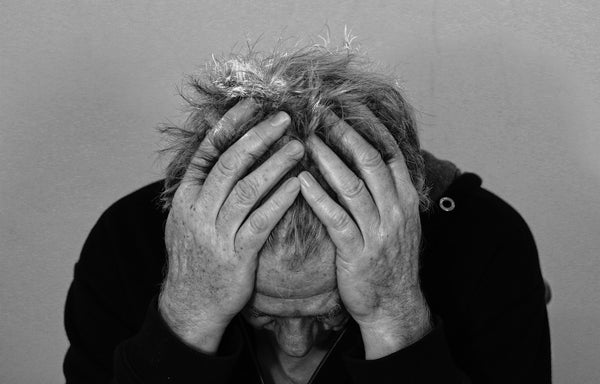
Source: Image by Gerd Altmann on Pixabay
Masturbation is considered a problem when it begins to resemble other types of behavioural addictions.
Therefore, Masturbation issues may manifest as follows:
- It consumes a significant amount of your time and energy.
- This behaviour negatively impacts your home, work, or personal life.
- You may be late to meetings, cancel events, or leave social appointments early to masturbate.
- Some may masturbate in public or uncomfortable places because they can't wait to get home.
- An individual could masturbate even when not aroused,
- When experiencing unpleasant feelings such as anger, worry, tension, or despair, your natural reaction is to masturbate for consolation.
- You get cravings or withdrawal symptoms when you are not masturbating.
What Are the Symptoms of Chronic Masturbation?
Masturbation addiction isn't a diagnosable disorder. It's crucial to understand that when we mention "symptoms," we're referring to criteria for classifying this condition. The number and intensity of symptoms can vary depending on the individual and the severity of their addiction.
Typically, the more severe the addiction, the more pronounced the symptoms become. These symptoms affect the individual across various aspects of life, including physical, cognitive, emotional, and social.
Common symptoms associated with masturbation addiction encompass:
- Reduced sensitivity
- Difficulty controlling impulses
- Feelings of shame related to masturbation
- Experiencing guilt due to masturbation
- Overstimulation resulting from excessive masturbation
- Sexual dysfunction
You must pause and contact someone for assistance if you encounter these symptoms.
Can You Stop on Your Own, Or Should You See a Professional?
Certain individuals can successfully quit compulsive masturbation independently. Nevertheless, others might require assistance and professional guidance to overcome it.
If you're having difficulties stopping this behaviour, consulting a sex therapist, especially one with expertise in addressing out-of-control sexual behaviours, can be beneficial.
Additionally, participating in a support group dedicated to sex addiction or hypersexual behaviours could offer valuable assistance in your journey to recovery.
What Treatment Options Are Available?
Doctors or other healthcare professional may suggest one or more of the following therapies:
1. Say 'NO' to Pornography
Pornography often plays a significant role in the lives of individuals who masturbate frequently. It can have a profound mental impact, influencing one's thoughts and behaviours in society. To break free from this influence, avoiding explicit images, videos, and websites that can rekindle those thought patterns is essential.
- Note: Do check our in-depth guide on hidden drawbacks of watching porn.
2. Take Therapy
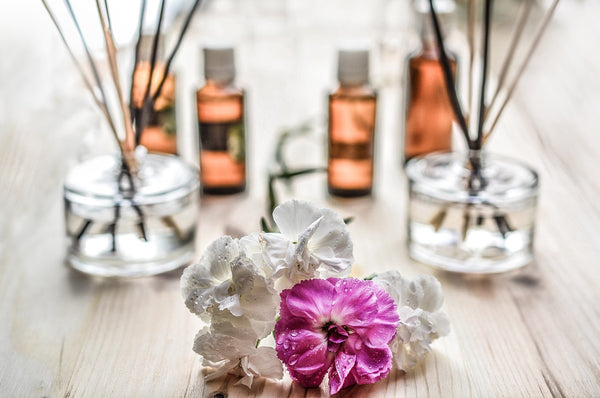
Source: Image by Monika on Pixabay
Engaging in talk therapy can be an effective approach to assess whether masturbation is negatively impacting your life and, if so, how to address it. During therapy, your therapist may inquire about:
- Your emotions and actions related to masturbation.
- Whether you engage in other compulsive sexual behaviours, such as sexual activity with a partner or pornography use.
- Any issues that arise due to your compulsive masturbation.
- Past traumatic experiences.
- Your current sources of stress.
This information helps your therapist determine if your behaviour qualifies as compulsive. They can also assist you in processing your emotions, identifying the underlying causes of your compulsive behaviour, and developing strategies to curtail or manage it.
It's important to remember that everything you share with your therapist will be confidential. Therapists will never discuss your sessions with anyone else.
3. Identify & Remove Your Triggers
If certain times or situations trigger compulsive masturbation, the initial step is determining those triggers. Identifying your triggers allows you to prepare in advance to either cope with them or find strategies to avoid them altogether.
Also read:
3. Join a Support Group
Having a network of people experiencing similar situations can be extremely beneficial. Support groups provide validation, and your validation can be valuable to many others in the group as well.
4. Consider Reducing Any Stigmas You Feel About Masturbation
If you experience shame and guilt due to these compulsions, it can be beneficial to remind yourself that such behaviour is natural. This is not something you must feel embarrassed about. It's essential to explore the origins of these fears and insecurities and work on healing them to foster a healthier relationship with sexual activities.
5. Be Present in Your Personal Relationships
It remains crucial to try to keep your friends, family, and, if applicable, your partner a priority. Planning enjoyable activities or spending quality time together gives you alternative things to engage in and effectively reduces compulsive urges.
6. Engage in Activities You Enjoy, Like Sports or Gaming
Dedicating time to engage in games, sports, or any activity involving your mind and body effectively redirects your focus away from masturbation. Discovering other fulfilling activities that keep you engrossed with things and people you genuinely enjoy is crucial.
7. Socialise a Lot
Are you aware that some individuals avoid socialising due to loneliness? It's true; an idle mind can lead to unexpected sexual problems. Socialising helps keep your mind engaged and distracted. Therefore, consider spending time with family and friends or going to the gym to boost your overall productivity.
8. Regular Exercise
Consistent exercise can help maintain your mental strength. Basic activities like running, swimming, walking, and jogging can boost your positivity and help you stay focused. Exercise also reduces stress levels and promotes a calm state of mind. Engaging in simple exercises for just 30 minutes each day can positively impact your well-being.
9. Medication
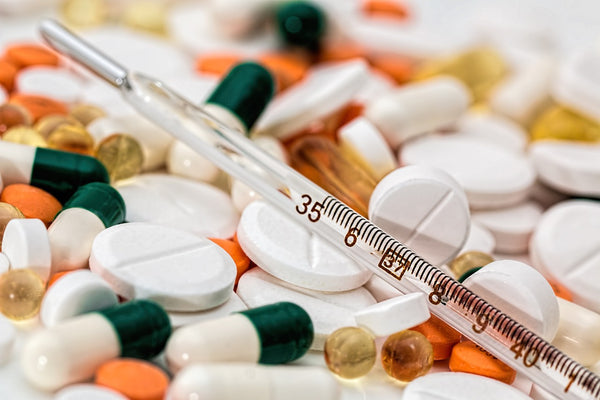
Source: Image by Steve Buissinne on Pixabay
There is no specific medication for addressing compulsive masturbation. However, compulsive sexual behaviours may relate to underlying mental health conditions like depression, bipolar disorder, or anxiety disorder. In such situations, prescription medications may be beneficial in managing these compulsive behaviours.
Also, do check our related guides:
- Impact of Masturbation on memory
- Impact of Masturbation on height
- Can Masturbation cause Erectile Dysfunction
Conclusion
If you're grappling with masturbation addiction, remember you're not the only one facing this challenge. Many others also deal with this addiction and can empathise with your situation.
If you find it hard to control your urges to masturbate, affecting your ability to focus on work and maintain healthy relationships, seeking assistance from a trained mental health expert is a valuable step. They can work with you to identify what triggers your behaviour and offer you effective coping strategies.
FAQs
Does masturbation cause Hairfall?
In short, no scientific proof links masturbation to hair loss. This misconception might arise from the belief that semen contains a lot of protein; thus, each ejaculation results in the loss of protein that could be used for growing hair.
Does masturbation cause weight loss?
Masturbation does not lead to weight loss. It doesn't affect your genitals or any other body part. It's a natural and wholesome sexual activity that generally doesn't burn many calories.
Is there any medicine to control masturbation?
There isn't a medication to stop masturbation. Furthermore, masturbation itself isn't inherently harmful; it's the addiction to it that can be problematic. It's not about how many years someone has been doing it.
But rather, how often and compulsively they engage in it matters for potential negative effects. In cases of masturbation addiction, doctors may prescribe depressants because they can assist in regulating the brain's reward system.
Is masturbation healthy?
Masturbation can be beneficial for your overall well-being, both mentally and physically. It is one of the safest forms of sexual activity because there's no chance of pregnancy or contracting STDs. When you experience an orgasm, your body releases endorphins, which are hormones that alleviate pain and create a sense of well-being.
Does masturbation cause pimples?
Masturbating or participating in sexual activities does not cause acne. This is a misconception! While these activities can influence hormone levels temporarily, those changes do not connect to the development of acne. If you're dealing with persistent acne, refraining from masturbation won't make a difference.
Does masturbation reduce sperm count?
No, masturbation does not impact a man's capacity to generate sperm. Sperm production occurs continuously so that men won't run out of sperm. After ejaculation, a man's sperm replenishes in just a few minutes.
Does masturbation cause memory loss?
The act of masturbating has no direct impact on memory. But when you masturbate, the body releases specific hormones in the brain that impact the body. Controlled masturbation can be good for your overall mental health. Masturbation aids in relieving discomfort while lowering tension and strain.
Does masturbation affect immunity?
A study discovered that masturbation temporarily boosted the activity of certain parts of the immune system, specifically leukocytes, especially natural killer cells. These cells combat cancerous tumour cells and cells infected by viruses.
Does masturbation cause muscle loss?
Masturbation doesn't contribute to the development or breakdown of muscle fibres, and it has minimal to no effect on muscle growth. Masturbation is a regular and wholesome sexual activity that doesn't directly hinder muscle building. It's a natural way for people to explore their sexuality and enjoy pleasure.
What to do after masturbation?
Soon after masturbating, taking a head bath may help to cool down the body and lower the likelihood of adverse consequences. Additionally, taking a head bath is probably going to calm you. For recuperation, getting adequate sleep is crucial. Sleeping for at least 8 hours per night is essential.





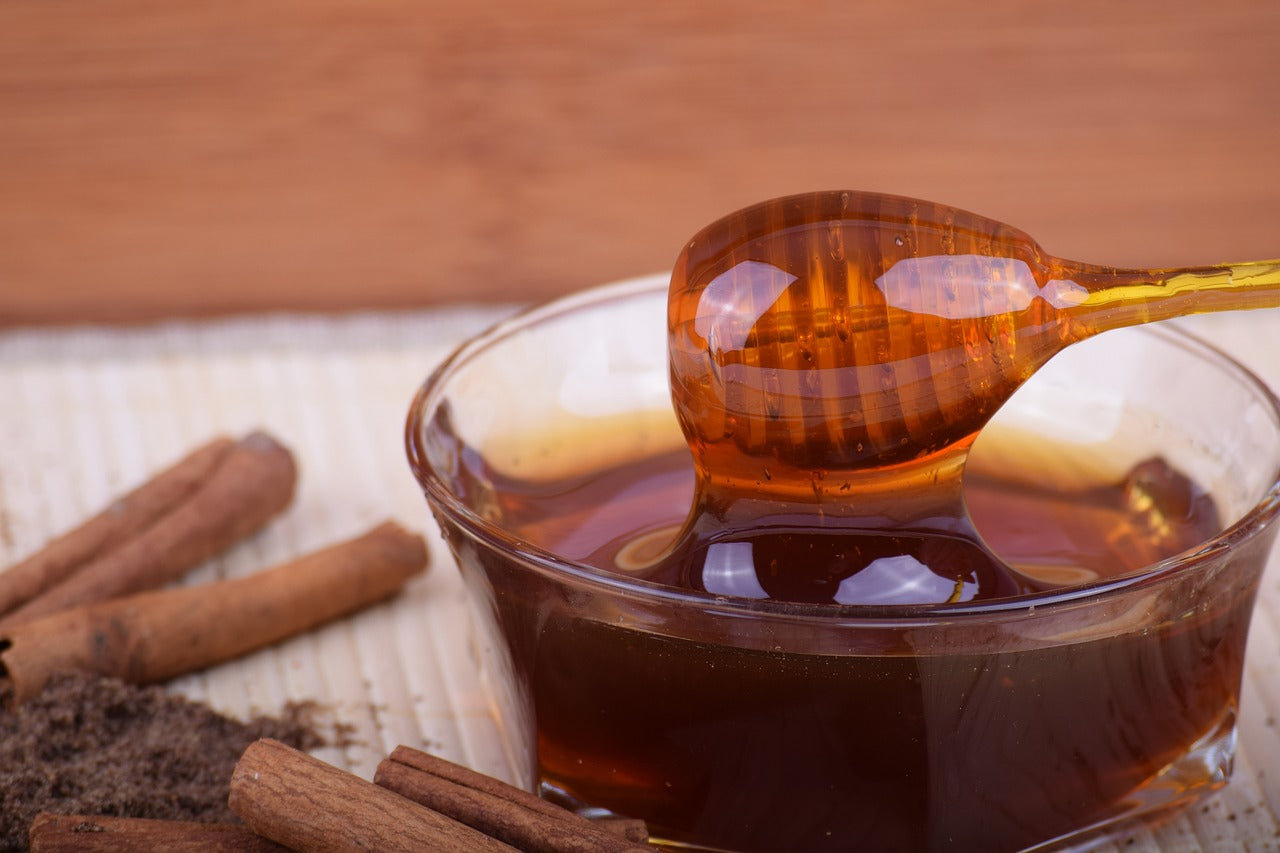
Leave a comment
This site is protected by hCaptcha and the hCaptcha Privacy Policy and Terms of Service apply.